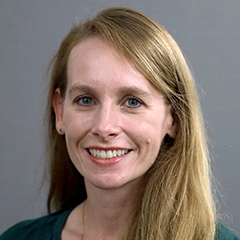Project Overview
Mathematica develops Medicaid 1115 demonstration implementation, monitoring, and evaluation tools to support oversight by the Centers for Medicare & Medicaid Services (CMS) and assist states in building data-driven approaches to demonstration operation. We also support CMS is synthesizing data across demonstrations and facilitating learning activities to accelerate promising practices.
Implementation, monitoring, and evaluation tools will help states and the policy community assess the performance of demonstrations. Ultimately, the insights generated by rigorous state-led monitoring and evaluation contribute to a larger body of knowledge about how to best provide health care to individuals and families through the Medicaid program.
- Social Interventions Research and Evaluation Network (SIREN)
- Health and Reentry Project (HARP)
U.S. Department of Health and Human Services, Centers for Medicare & Medicaid Services, Center for Medicaid and CHIP Services
Mathematica provides technical assistance to CMS and states in implementing, monitoring, and evaluating the full range of Medicaid 1115 demonstrations.
Demonstration types include those with policies affecting eligibility and coverage as well as those addressing substance use disorder (SUD), serious mental illness/serious emotional disturbance (SMI/SED), social determinants of health/health-related social needs (SDOH/HRSN), justice-involved populations, traditional health care practices, and family planning. Under this contract, we create and maintain standardized templates for applications, implementation plans, monitoring metrics and reports, and evaluation design guidance. Many of these products are publicly available on Medicaid.gov. We also synthesize monitoring data as states submit it to CMS, and we have created interactive analytic tools to enable CMS to track demonstration progress, as well as public reports. The project also helps CMS develop and implement its approach to budget neutrality for 1115 demonstrations, allowing investments in innovation across states with both new and longstanding demonstrations.

We are proud to be supporting CMS oversight and state innovation across a wide range of policies, including demonstrations that support transitions back to the community for formerly incarcerated individuals and demonstrations addressing substance use disorder and serious mental illness, now approved in more than two-thirds of states. Our work to support CMS in updating budget neutrality policies enables investments in innovation across states while maintaining program fiscal integrity.
Evidence & Insights From This Project

Better Policies and Programs Start with Better Data Collection Systems
Mathematica’s recent experience supporting Medicaid Section 1115 demonstrations illustrates how investing in a more effective data collection system can help organizations produce reliable, practical insights to drive better policy and program design.
Learn MoreRelated Staff
Efficiency Meets Impact.
That's Progress Together.
To solve their most pressing challenges, organizations turn to Mathematica for deeply integrated expertise. We bring together subject matter and policy experts, data scientists, methodologists, and technologists who work across topics and sectors to help our partners design, improve, and scale evidence-based solutions.
Work With Us





